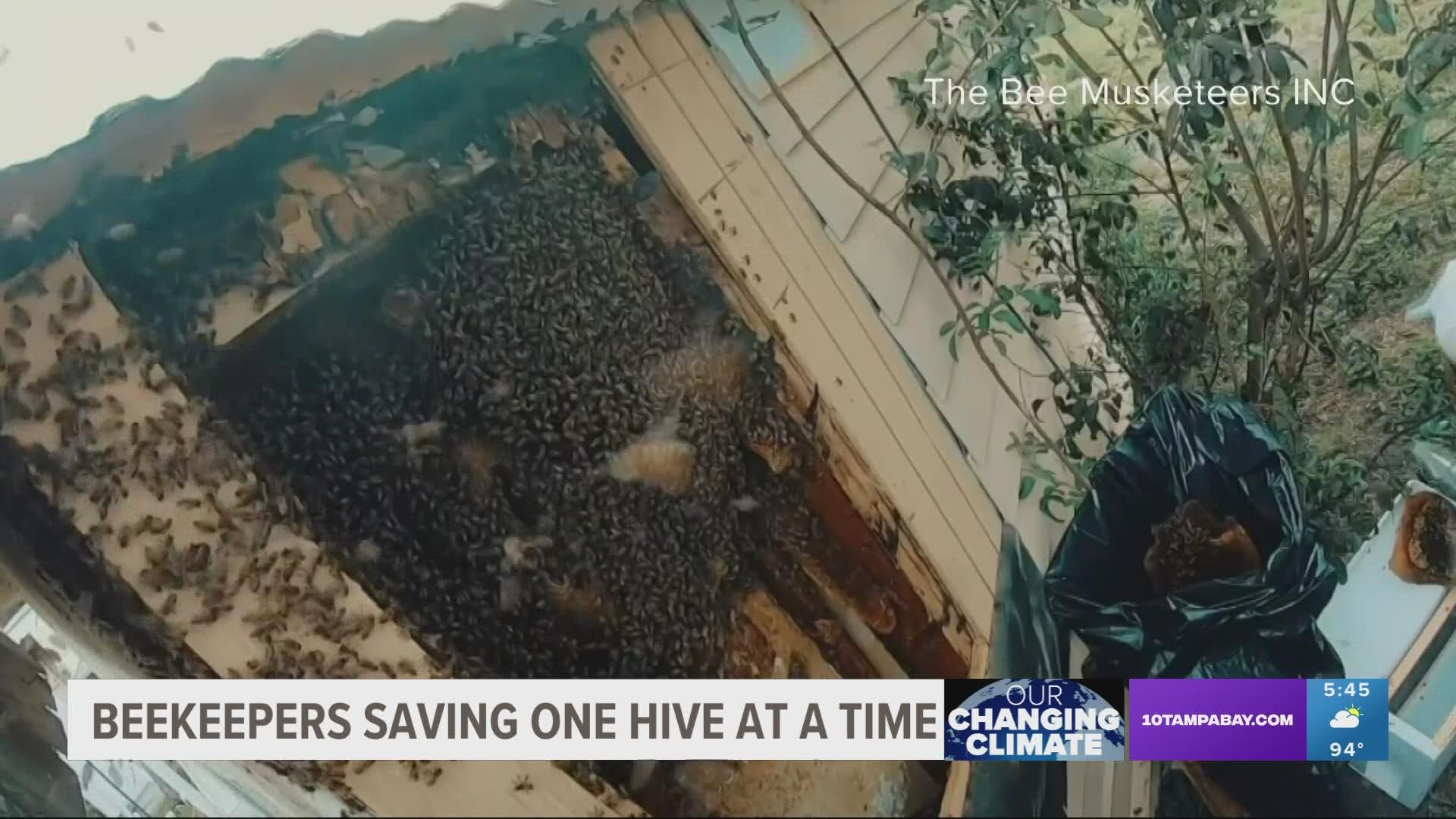ST. PETERSBURG, Fla. — You may have noticed a certain extra buzz around town during our warmer months, especially as flowers are in full bloom.
Pollinators, like the honey bee, are a crucial puzzle piece in our nation’s food supply. But our changing climate is making it more difficult for bees to thrive and provide their long list of benefits.
“Bees are very important for us, not only for our survival because 80% of the crops that we produce in this country are pollinated by bees. So without the bees, we would basically starve within a matter of years,” Allison Davis said.
Both Allison and Matt Davis are local beekeepers, specializing in live bee removals and education on the importance of bees in our community.
According to the U.S. Department of Agriculture, drastic changes in the environment, such as temperature swings, floods and droughts, are making the ecosystem between flowers and pollinators less suitable. Not only do these pattern changes affect pollination, but it causes nutritional stress and affect their overall growth and reproduction.
“We did lose a lot more bees this year than normal, and I think a lot of it had to do with the fact there wasn’t food available for them at the same time of year there would normally be,” Allison Davis said.
As we continue to see warmer temperatures later in the fall and winter seasons — at a greater frequency — there lies an increasing risk to parasites and disease, affecting their ability to work or make that sweet liquid gold we love so much.
The non-profit, the Bee Musketeers, raises funds for those who can’t afford live bee removals so that they are removed safely with as little disruption to their ecosystem as possible. This passion also led the husband and wife team to make bee rescuing their livelihood through Noble Nectar Apiaries.
Allison Davis shares with us the importance of live removals: "We come in and we take bees alive versus them being exterminated. With extermination, a lot of the times what happens is the hive can be exterminated and there might be honey left in that hive that was exterminated.
"...It’s got all those pesticides in there now, so bees from other colonies are now coming to steal the honey and they’re getting into those pesticides so it’s just traveling and now it’s harming other colonies of bees, as well, so part of what we do is that live removal."
Education on the importance of bees in our community is crucial, and we need to actively work to protect them in our changing climate.
“On a smaller scale you can say that there's impact on a personal level but I think that the impact is much greater than that when you look at it in the big picture of how our society operates and how agriculture is done in this country," Matt Davis said.

